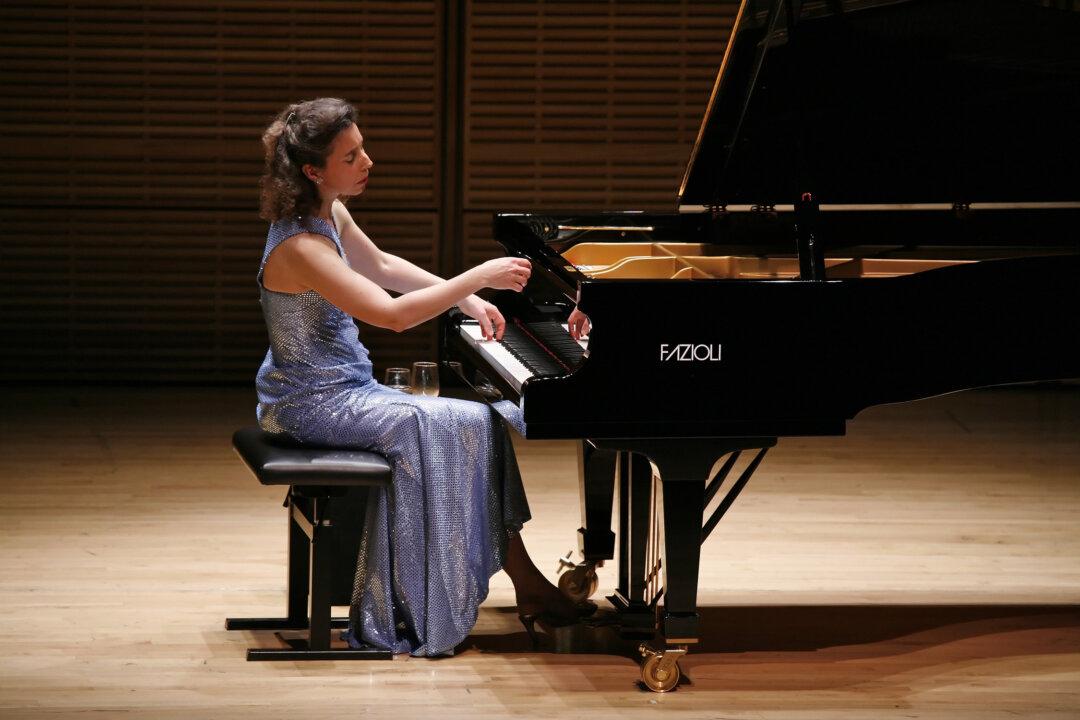Classical pianist Angela Hewitt has embarked on a marathon of epic proportions. Aptly titled the “Bach Odyssey,” Hewitt’s performance series will consist of 12 recitals over four years, in which she will be presenting all the major keyboard works of J.S. Bach.
Hewitt is one of the world’s leading pianists. She is at the stage of her career where she has her pick of repertoire, and she has an overwhelming schedule packed with performances and recordings. What made her want to revisit all of Bach, all over again?
Well, initially, she didn’t. But then the idea of completing Bach in a concentrated time frame changed her mind.
One could say she was born to do it: Her father was a cathedral organist and her mother a music teacher. She danced and sang and played piano, violin, harpsichord, and recorder to Bach. One of her earliest memories of Bach is of her father on the organ, his marvelous playing of the Toccata and Fugue in D Minor, something he then arranged for the whole family—eight hands on two pianos—when she was about 10.
“I was lucky I was born into the right household for sure, for playing Bach,” Hewitt said. Though the Canadian pianist has a vast repertoire, she has been playing Bach since the age of 4 and still finds more to bring to the pieces. Between 1994 and 2005, Hewitt recorded the complete works of Bach and was performing his works at the same time.
In 2015 she recorded the “Goldberg Variations” a second time, released with extensive and insightful notes on the music. She is an expert on Bach. “It’s a lifetime’s experience,” she said.
At 92Y, Hewitt will perform on Oct. 27 and Oct. 30, and again in April for the 2017 season. On Thursday, Hewitt revisits pieces she’s performed many times, along with ones she hasn’t performed for over a decade, bringing to the audience some lesser-heard Bach, like his capriccios. On Sunday, she plays the six “French Suites,” pieces she’s played all her life, and perfect ones to showcase the joy and dance of Bach.
Dancing With Bach
The thing about Bach, Hewitt said, is that you can appreciate the work on so many different levels. Someone who knows more about Bach and his work will delight in the perfect architecture and intricacies. His music is deceptively simple, Hewitt said, as Baroque composers wrote little more than just the notes—no instructions on how works should be played, making interpretation a scholarly endeavor.
But anyone can enjoy it, because the music is beautiful, moving, and emotionally cathartic.
“It’s music that speaks to everybody,” Hewitt explained, first because it’s beautiful, but also because of its roots. Bach is well-known for his faith and less so for his interest in dance, but both are major influences on his work.






